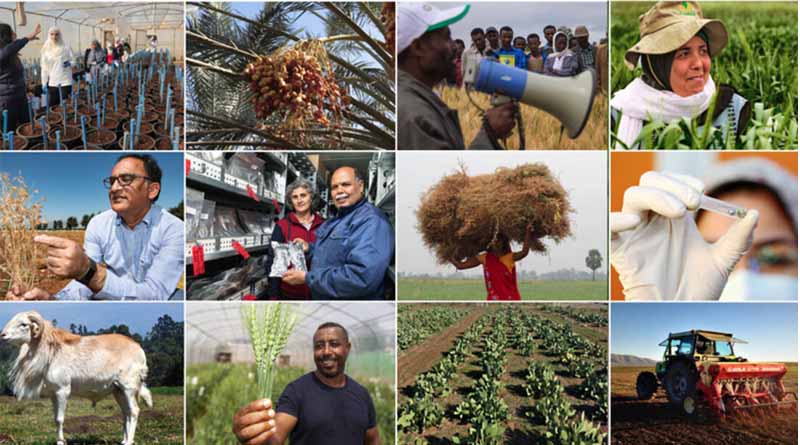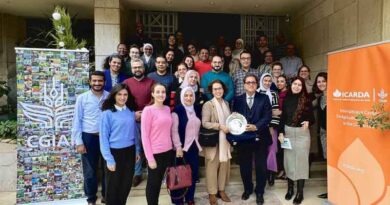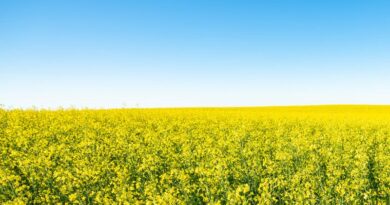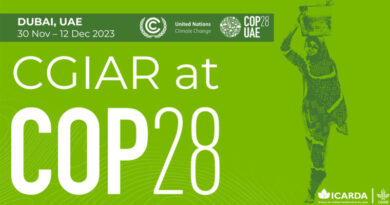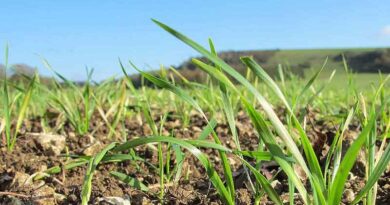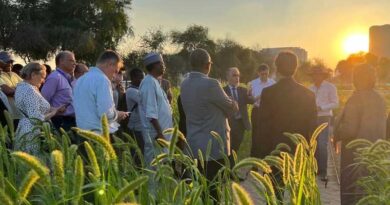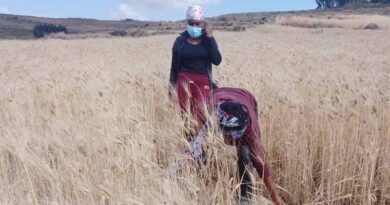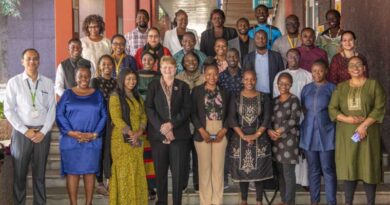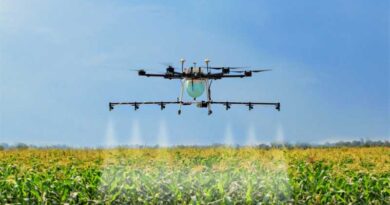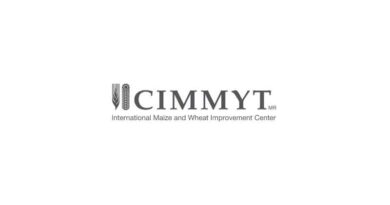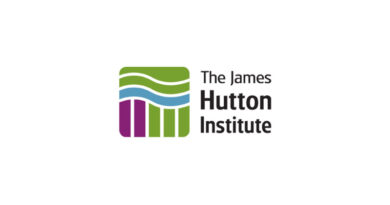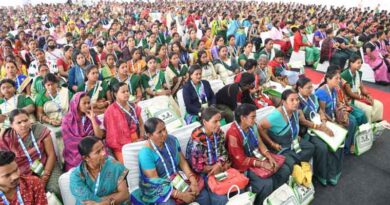The ICARDA 2030 Research and Innovation Strategy

“I am thrilled to unveil ICARDA’s 2030 research and Innovation Strategy: “Sustainable dryland agriculture for a resilient and prosperous future.” This updated partner-led approach signifies a crucial milestone in ensuring ICARDA and our pioneering research, remain agile and relevant amid the accelerating pace of climate change and technological advancements.”
Mr. Aly Abousabaa, Director General, ICARDA, CGIAR Regional Director CWANA
09 May 2024, New Delhi: Our updated research agenda now centers around climate change science, equipping us to tackle the complex and constantly evolving agricultural challenges facing farmers and countries across the region. We also foster a new symbiosis between technology and science, harnessing breakthroughs like genome editing, artificial intelligence, and carbon capture to maintain our position at the forefront of dryland agricultural research.
Crucially, our updated strategy integrates the collaboration, expertise, and resources of our networks and partners, ensuring our agri-science is laser-focused on their needs while enhancing the testing and scaling of our innovations.
Evolving science in a shifting dryland context
As the climate emergency intensifies, dryland communities and agricultural economies face escalating challenges. Rising temperatures, dwindling water resources, and weather shocks are increasingly prevalent, compounded by conflict and natural disasters that exacerbate economic uncertainty, migration, and supply chain disruption in a region already marked by environmental and political fragility.
Swiftly adapting our research to this evolving landscape is crucial for ICARDA and other agri-development organizations. While our 2016 research and innovation strategy served us well, standing still is to risk falling behind in the race to generate climate-smart dryland food production systems. Our new strategy aligns with CGIAR’s 2030 Strategy to build upon this legacy in new and innovative ways to ensure our research remains relevant and fit for purpose.
Leveraging our partners’ expertise
Through an exhaustive consultation process over 2023, we actively engaged a diverse array of expert stakeholders, including country partners, research institutions, the public and private sectors, policymakers, and representatives of dryland communities.
In Lebanon, we convened leaders from regional National Agricultural Research (NARS) programs with the ICARDA Board of Trustees, and I also met with agricultural ministers from more than half of the CWANA countries we work in, while ICARDA conducted detailed surveys with partners whom we couldn’t meet face to face. We also carried out a comprehensive foresight study of future global dryland scenarios, ensuring our new approach is precisely targeted to the priority issues.
Unpacking our 2030 Research and Innovation Strategy
ICARDA’s 2030 Research and Innovation Strategy reshapes our 2016 approach to meet the most pressing needs of today’s smallholder dryland farmers.
Our updated Strategic Research Priorities (SRPs) now focus on new ways to conserve and utilize plant genetic diversity in adapting climate-smart crops while fostering more resilient agrosilvopastoral systems, strengthening environmental health and soils, and enhancing market access, policies, and value chains. Disruptive innovations include state-of-the-art crop breeding technologies like phenotyping machines in Morocco to speed up research, and integration of hardy prickly pear cactus that can offer dryland smallholders more nutritious diets. We’ve included nitrogen-fixing or methane-reducing legumes in breeding programs to guard the environment, while implementing agrivoltaics will optimize solar energy integration in agriculture.
As climate change science now drives our innovations, transformative technologies, such as AI, genome editing, and gene editing, will enhance cost-efficiency and impact. Capacity development, particularly for women and marginalized groups, will provide better tools and market knowledge for farmers to manage their resources and business in equitable and sustainable ways, and stepped-up agri-training will cultivate the next generation of regional agri-scientists and experts. Meanwhile, productive new partnerships will drive innovation while strengthening resource mobilization to support and grow research and development.
CWANA’s global science
As the CWANA region faces escalating temperature and aridity, it serves as an increasingly valuable testing ground for the global advancement of climate-smart agriculture. Our innovations not only tackle the region’s challenges but hold significant relevance for global dry areas that span Southern Europe, North and South America, Asia, and Africa, offering a resilient and prosperous future for millions of dryland farmers beyond our borders.
A unified future
Central to our mission is the empowerment of vulnerable smallholder dryland communities. I take immense pride in our commitment to lift 10 million people out of poverty in the drylands, creating 3 million employment opportunities for women and youth while ensuring access to nutritious food for 10 million individuals.
Through our updated strategy, we commit to collaborative leadership to drive change, explore new partnerships, share knowledge exchange, and hone the innovative skill sets needed to tackle the challenges of tomorrow. To scale our research and innovations, we’ll intensify efforts to attract investment and optimize project delivery and impact.
With this collective endeavor in mind, I am confident that despite the challenges ahead, and indeed because of them, we will deliver targeted solutions for dryland communities to thrive rather than just survive. I thank everyone who contributed valuable insights and feedback towards developing our strategy and, above all, our partners and the ICARDA family for their effort, input, and continued dedication.
Mr. Aly Abousabaa,
Director General ICARDA,
and CGIAR Regional Director Central and West Asia, and North Africa (CWANA)
Also Read: BASF Launches New Insecticide Efficon With Axalion Active Introduced Under IRAC Group 36
(For Latest Agriculture News & Updates, follow Krishak Jagat on Google News)

